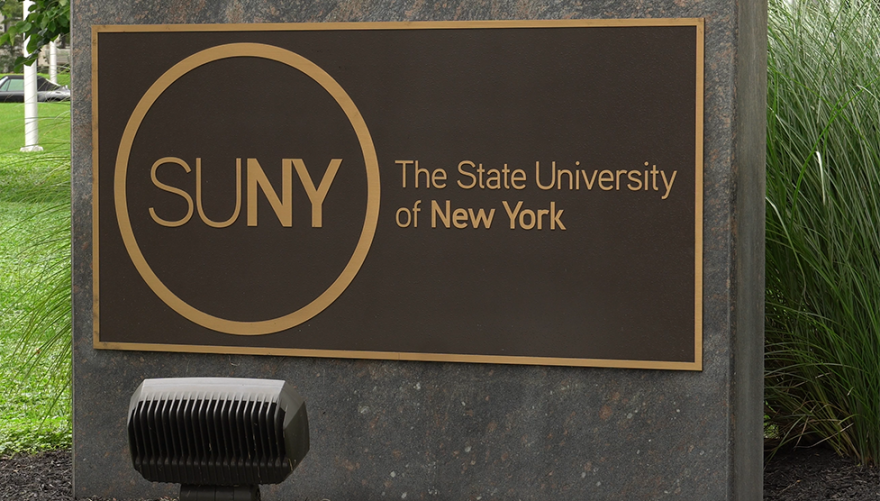NEW YORK NOW - New York’s public colleges and universities began de-registering students this week who’ve decided against getting vaccinated after the SUNY system’s 35-day grace period for that requirement expired on Monday.
About 97% of students enrolled at SUNY schools across New York have complied with the mandate, according to a SUNY spokesperson.
But the small number of students who’ve chosen against the vaccine will now face de-registration until they’ve received the jab, the spokesperson said. The share of unvaccinated students varies by campus, but it’s up to 2% depending on school.
Most students who haven’t received at least one dose of the vaccine are non-residential, community college students, the spokesperson said.
“Of those unvaccinated, campuses are working with students on an individual basis who have shown a best effort to get vaccinated,” said Jackie Orchard, a spokesperson for SUNY. “The process of de-registering students began Monday for those who have not made any effort to get vaccinated. Our hope is that any de-registration would be a temporary leave of absence.”
That follows a directive from the state adopted by SUNY that requires all students who intend to learn or study in-person on campus to be vaccinated, pending final approval of the vaccine by the U.S. Food and Drug Administration.
The requirement was formally triggered when the FDA gave final approval to the Pfizer vaccine in late August.
While the COVID-19 vaccine is the newest on the scene, it’s not the only inoculation required to attend a public or college university in New York. Students are also required to be vaccinated against measles, mumps, and rubella before their first semester.
SUNY is also far from alone in its COVID-19 vaccine requirement; New York is requiring health care workers to be vaccinated against the virus, while state government employees either have to be vaccinated or be tested weekly for COVID-19.
Those mandates are also the subject of litigation making its way through the state and federal court systems, meaning they could change over time at the court's discretion.

